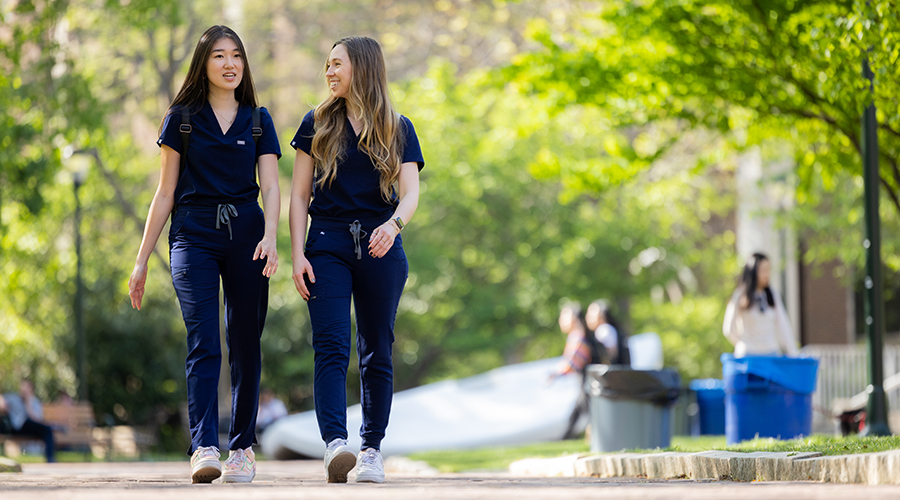
The Pre-Health Specialized Studies Program is designed to help you build a more competitive professional school application. The Specialized Studies Program will meet your needs if you already have a significant scientific background but seek to bolster your academic credentials and update your knowledge of more advanced topics in the sciences, such as biology or neuroscience.
As a Pre-Health Specialized Studies student, we will help you design a study plan based on your personal academic background and timeline, to achieve optimal preparation for your chosen professional school. If a general chemistry or physics course is part of your study plan, a college-level pre-calculus course or higher is a required prerequisite. This requirement may be waived for students who submit any of the following as part of their application:
- Documentation of AP Calculus AB with a score of 4 or above
- Documentation of AP Calculus BC with a score of 4 or above (or AB sub-score of 4 or above)
- Documentation of academic credit or a course requirement waiver for AP Calculus AB/BC on their undergraduate transcript
The online Pre-Health Math On-Ramp review course is also required for any Pre-Health student who intends to enroll in a general chemistry or physics course at Penn. There is a small fee associated with this course and it is only available during the summer session. So, advance planning in consultation with an academic advisor at the time of your interview is key.
Penn offers an incredible array of outstanding science courses, covering unique and engaging topics that will strengthen and broaden your scientific knowledge. The following list includes examples of recent upper-level science offerings taken by students in the Specialized Studies Program:
- Advanced Cell Biology
- Essentials of Molecular Biology and Genetics
- Cancer Cell Biology
- Histology
- Immunobiology
- Essentials of Vertebrate Physiology
- Essentials of Biochemistry
- Infectious Diseases
- Neuroscience: All Penn LPS NRSC courses plus online NEUR 2600 Hormones, Brain and Behavior; NEUR 2800 Autonomic Pharmacology; and NEUR 4000 Psychopharmacology are allowed
- Human Anatomy*: 1 c.u. of online Human Anatomy may be applied to LPS Pre-Health Programs academic requirement
You can complete the Specialized Studies Program on a full-time or part-time basis, with most students taking two to four courses per semester.
Note that fall and spring classes are rostered in the evenings and summer courses are rostered in the morning, afternoon, and evening.
Successful candidates for the Specialized Studies Program will have previous experience working, volunteering or shadowing in a clinical setting or in another service-related capacity. You will continue building upon these experiences during your studies in the Specialized Studies Program.






